- Home›
- Healthy Living›
- 6 Natural Herbs That Are Beneficial For Diabetes
6 Natural Herbs That Are Beneficial For Diabetes
By: Kratika Maheshwari Sat, 26 Nov 2022 11:21:13
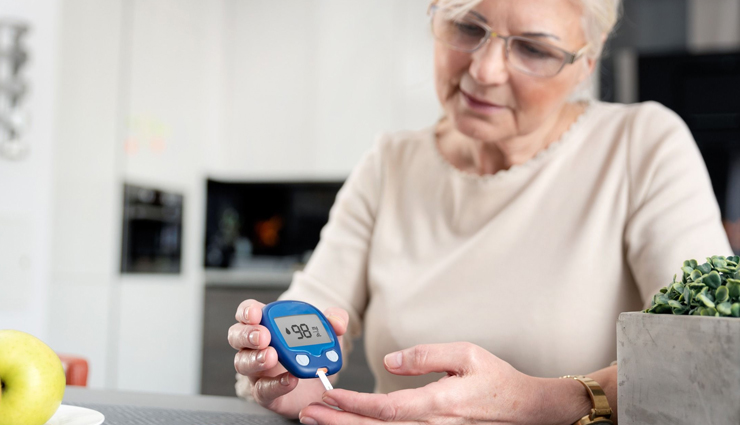
The primary approach to treat and manage diabetes is through the administration of conventional treatments likeinsulin injections. This can help to keep blood sugar levels in check, reducing the risk of severe complications. Unfortunately, lifelong dependence on such medications takes a huge toll on your health and finances. This has increased the demand for natural and alternative treatments that can reduce dependence on diabetes drugs and improve quality of life. While diet and exercise are at the forefront of any natural treatment plan, natural medicines like nutritional supplements and herbal medicines are also popular. But, how do you choose from all the options?
When it comes to nutritional supplements, most experts agree that dietary intake of nutrients is more effective than supplementation. This is why diet therapy should be the primary approach while nutritional supplementation should only be used to address nutritional deficiencies. Herbal medications and remedies are quite different however. Aside from the long history of their use in Ayurvedic medicine, researchers are now confirming many of their therapeutic benefits, even investigating them as a potential source of new pharmaceutical drugs. If you wish to use medicinal herbs and natural medicine for diabetes, keep an eye out for products containing these herbs.
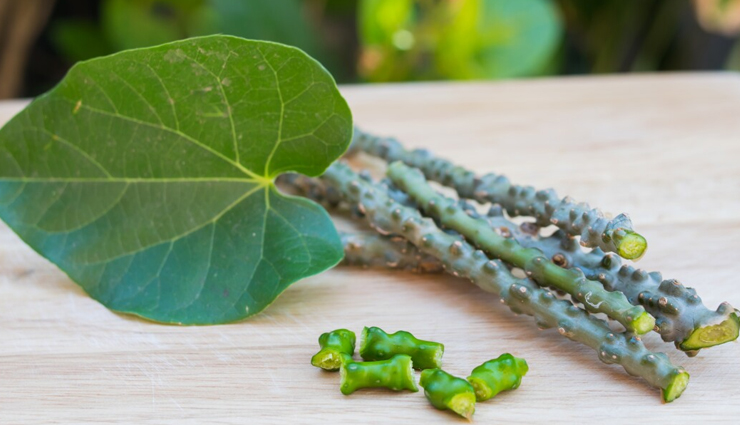
# Guduchi
Popular under the names of guduchi as well as giloy, this is the most important Ayurvedic herb in the fight against diabetes. Here’s why:
- Guduchi has been found to work as a natural anti-hyperglycemic agent. It can help to lower blood glucose levels naturally, improving glucose metabolism as well as tolerance.
- Some research indicates that guduchi can provide other benefits for diabetics aside from blood sugar control. It can relieve some of the most common diabetes complications like diabetic neuropathy and gastropathy.
- The herb also provides anti-diabetic benefits indirectly through its anti-inflammatory, hepato-protective, cardio-protective, and immunomodulatory effects. This can improve treatment outcomes as diabetics are at higher risk of cardiac disease, infections, and liver problems. Additionally, chronic inflammation is known to play a role in the progression of diabetes.

# Tulsi
Tulsi or Holy Basil has held a place of reverence in India for millennia and it should be no surprise. Aside from the divine connotations, tulsi is endowed with various therapeutic properties. This is how it helps treat diabetes:
- Tulsi has a complex tapestry of phytochemicals and many of these compounds act via a number of cellular mechanisms to lower blood glucose levels. This hypoglycemic effect has been noted in several studies.
- Like guduchi, tulsi can also offer some indirect benefits through its immunomodulatory and anti-inflammatory properties.
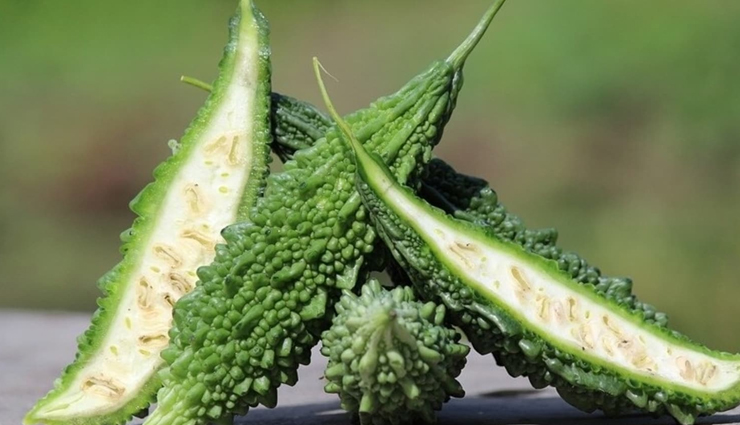
# Karela
Karela is a fruit or vegetable that is widely used in Indian cuisine. It’s one that most of us also dislike intensely because of its bitter taste, but it has long been regarded as medicinal in Ayurved. One of the many conditions that it is used to treat is diabetes. There are several reasons why it remains an important ingredient in Ayurvedic diabetic medicine:
- Several studies have confirmed that karela intake can lower blood sugar levels over a period of time. In two such studies, the dosage of karea ingested per day was 2,000 mg and improvements were observed from 4 weeks onward.
- The herb is effective at relieving diabetes as its organic compounds improve sugar metabolism in body tissue, while also enhancing insulin production. This has a combined effect of regulating blood sugar levels.
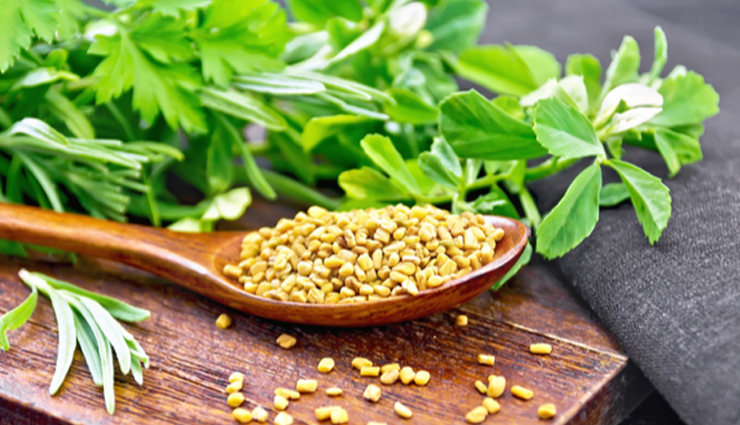
# Methi
Methi is another natural diabetes medicine ingredient that is also a popular food in India. The leaves are widely used in cuisine and have a mildly bitter taste similar to karela. As it turns out, Ayurved recognized the herb’s therapeutic potential millennia ago and this is now being confirmed by modern studies. Here’s how methi can help with diabetes:
- A number of compounds in methi leaf and seeds contain compounds that help to reduce intestinal glucose absorption, while improving insulin sensitivity and action. Some studies have shown improved glucose tolerance with methi intake.
- A study in Korea also found that ingestion of herbal tea prepared from methi reduced feelings of hunger and increased satiety. This can help reduce food cravings and improve weight loss, which is important for diabetes management.
- Methi intake is also known to reduce systemic inflammation, which is linked to the development of metabolic disorders like diabetes and it also lowers the risk of cardiac disease.
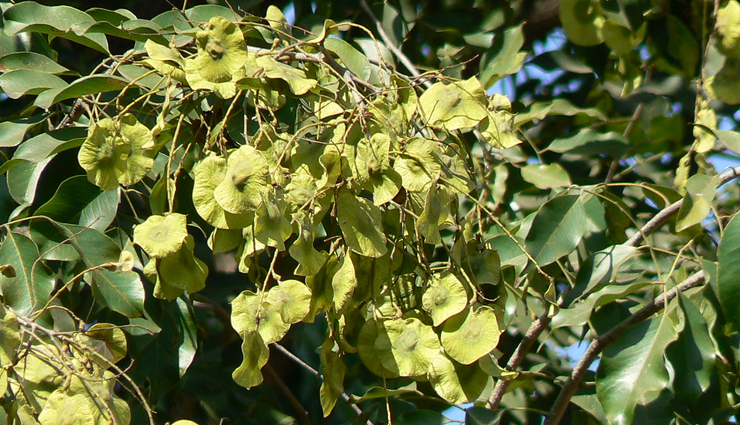
# Vijayasar
This is one of the most highly valued herbs in Ayurved and it is often used as the primary ingredient in natural medicines for diabetes. It is classified as a rasayana or rejuvenative, but isn’t as well-known as other rasayanas as the herb is now threatened because of habitat loss and climate change. This is what makes vijaysar an effective natural medicine for diabetes:
- Chronic systemic inflammation plays a critical role in the development of type-2 diabetes and vijaysar can address this type of inflammation lowering the risk of diabetes and helping fight it. It is regarded as an effective anti-diabetic drug especially for those at high risk of the condition like prediabetics.
- The herb specifically targets and lowers levels of cytokines or inflammatory markers like tumor necrosis factor (TNF)-α, which is known to play a role in insulin resistance. Through these mechanisms, the herb may also shield against atherosclerosis and vascular problems that develop in diabetes.
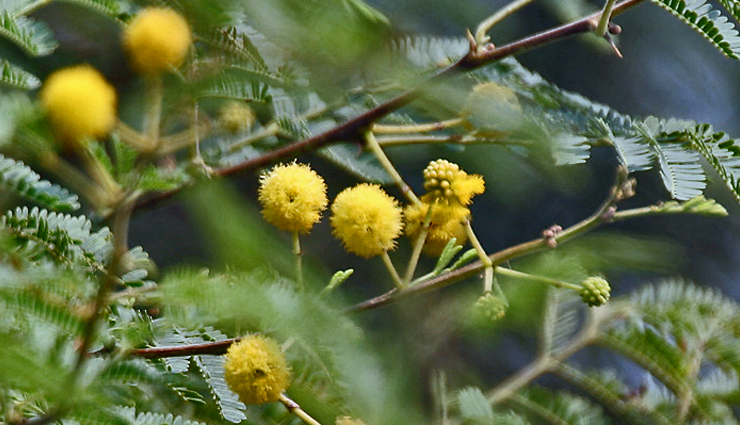
# Babbul
Babbul or babool is certainly not one of the best known herbs when it comes to diabetes treatment. However, it is sometimes used in diabetes medications and it can help for several reasons. These include:
- Polyphenolic compounds in babul are known to exert hypoglycemic effects to lower blood sugar levels. It does so by encouraging the production of insulin hormone.
- Its antioxidant content and tannins are also believed to activate glucose transfer, thereby helping regulate sugar levels. It may also prevent lipolysis.
- Babbul may also be beneficial to diabetics because of its chromium content, which is known to improve the action of insulin.





